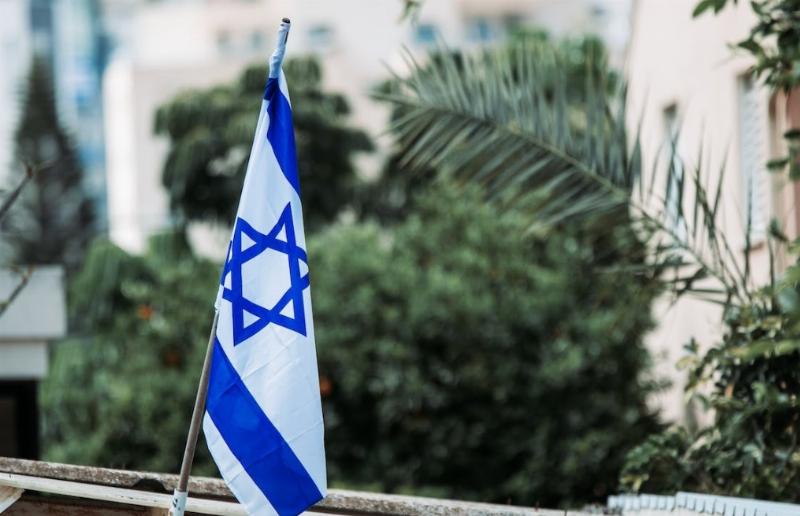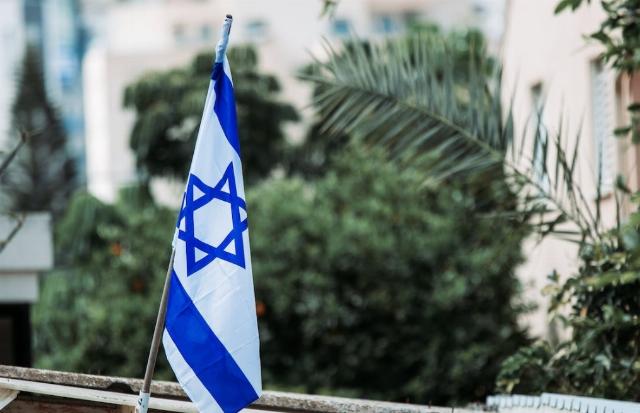


Although we all might hope that this brand-new recommendation for peace has been designed for Gaza, it is actually for the West bank. It’s important to underscore that the West Bank has also been problematic over the years. And perhaps resolving its issues will be an incentive for resolving the Gazan war.
So, what is this new plan?
‘We want cooperation with Israel,’ says Sheikh Wadee’ al-Jaabari, also known as Abu Sanad, from his ceremonial tent in Hebron, the West Bank’s largest city located south of Jerusalem. ‘We want coexistence.’ The leader of Hebron’s most influential clan has said such things before, as did his father. But this time is different. Sheikh Jaabari and four other leading Hebron sheikhs have signed a letter pledging peace and full recognition of Israel as a Jewish state. Their plan is for Hebron to break out of the Palestinian Authority, establish an emirate of its own, and join the Abraham Accords.
[snip]
‘The Emirate of Hebron shall recognize the State of Israel as the nation state of the Jewish people,’ the sheikhs write, ‘and the State of Israel shall recognize the Emirate of Hebron as the Representative of the Arab residents in the Hebron District.’ Accepting Israel as a Jewish state goes further than the Palestinian Authority ever has, and sweeps aside decades of rejectionism.
The sheikhs are proposing a trial period and gradual increase in the population in Hebron:
With the West Bank occupied by Israel and seeing daily violence that has only escalated since the war with Hamas began, Jaabari proposed a trial run that would see 1,000 Hebron workers establish an autonomous 1,000-acre economic zone bordering Israel.
If all goes well, the zone would grow to 5,000 more residents and then 50,000, with the sheikhs pledging to a ‘zero tolerance’ policy against terrorism.
Jabbari accused the PA of supporting terrorist activity in the West Bank.
‘I plan to cut off the PA,” Jaabari vowed. ‘It doesn’t represent the Palestinians.’
This proposal could be transformational for the region. To reiterate, the sheikhs in Hebron would fully recognize Israel’s right to exist, promise peaceful coexistence, and become signatories to the Abraham Accords. In return, Israel would be expected to recognize a new Emirate of Hebron; the PA, which has backed terrorism and rewarded terrorists’ families for their activities, would be removed from power.
How did this plan emerge? Through the brilliance of a scholar who intimately understands the Arab culture and the importance of families and clans:
The emirates solution concept originated with Mordechai Kedar, an Arab culture scholar at Bar-Ilan University who brought Sheikh Jaabari to [Israeli Economy Minister Nir] Barkat five years ago. Kedar has promoted the idea of Palestinian emirates for 20 years, envisioning the West Bank’s seven culturally distinct cities governed individually by their leading clans. He first met Sheikh Jaabari’s father, Sheikh Abu Khader, 11 years ago.
Kedar’s analysis draws on regional patterns, noting that failing Arab states like Lebanon, Syria, Iraq, Sudan, Yemen, and Libya represent ‘conglomerates of ethnic, religious and sectarian groups, with modern states imposed flimsily on top.’ Conversely, successful Arab states – Kuwait, Qatar, Oman, Saudi Arabia, and the UAE’s seven emirates – ‘are each controlled by one family.’
Also worth noting is that families have historically ruled the area for hundreds of years, and al-Jaabari’s already has plenty of support from hundreds of thousands of local residents:
A document in Hebrew lists the Hebron-area sheikhs who have joined the emirate initiative. The first circle has eight major sheikhs, who together are believed to lead 204,000 local residents. The second circle lists 13 more sheikhs, who lead another 350,000. That makes a majority of the more than 700,000 people in the area. Both circles have sworn allegiance to Sheikh Jaabari in this matter, an Israeli associate of the sheikh witnessed. Those clan members also include many of the Palestinian Authority’s local foot soldiers. The sheikhs expect them to side with family.
How is Israel responding to the proposal?
Minister Barkat is working with the sheikhs to explore the plan’s feasibility:
Barkat emphasized that traditional peace processes have failed, necessitating ‘new thinking’ to address the Israeli-Palestinian conflict. The Wall Street Journal reported that he has been working with full knowledge of the Israeli government to explore these possibilities with the sheikhs. A senior Israeli source confirmed that Prime Minister Benjamin Netanyahu has been supportive but cautious, monitoring how the initiative develops.
But there is still skepticism about the plan from Israel’s security apparatuses: for thirty years, the Shin Bet has viewed the PA as “crucial for combating West Bank terrorism”.
There are also concerns, primarily from Israel, about the methods for removing the Palestinian Authority from power, as well as arming multiple families with arms, according to retired Major General Gadi Shamni, who commanded IDF Central Command from 2007–09. Another officer, Brigadier General Amir Avivi and founder of the Israel Defense and Security Forum, is optimistic and sees significant potential for the plan:
He [Avivi] characterized the Palestinian Authority as ‘the central incubator of terrorism, via school indoctrination and pay-to-slay salaries’ and suggested the Shin Bet might reconsider when David Zini, Netanyahu’s right-wing nominee, assumes agency leadership.
Avivi has met Sheikh Jaabari multiple times and considers him serious, particularly given his success in rallying numerous other sheikhs. ‘If Israel’s position is that the PA can’t be allowed to rule in Gaza because they’re terrorists and they’re corrupt, why are they OK to rule in the West Bank?’ he questioned.
In spite of some cautions voiced by Israel, Sheikh Jaabari is committed to the process:
Asked if he is worried his vision of coexistence with Israel will be called a betrayal of the Palestinian people and their cause, Sheikh Jaabari scoffs. ‘The betrayal was done in Oslo. You forgot, but I remember—33 years of it,’ of false promises, violence, theft and poverty, even as billions of aid dollars poured in from the West. ‘I believe in my path,’ the sheikh says. ‘There will be obstacles, but if we confront a rock, we will have iron to break it.’
Maybe Gaza will take note.

Image from Pexels.
